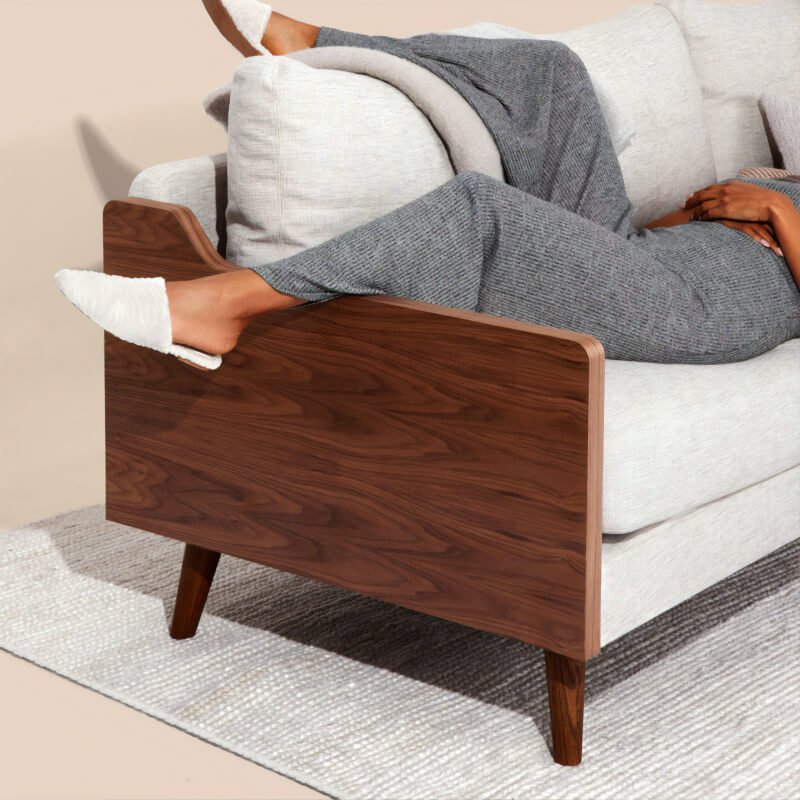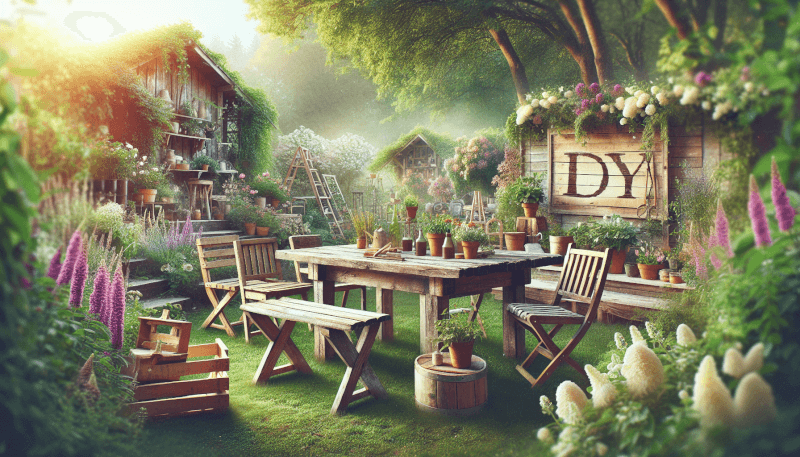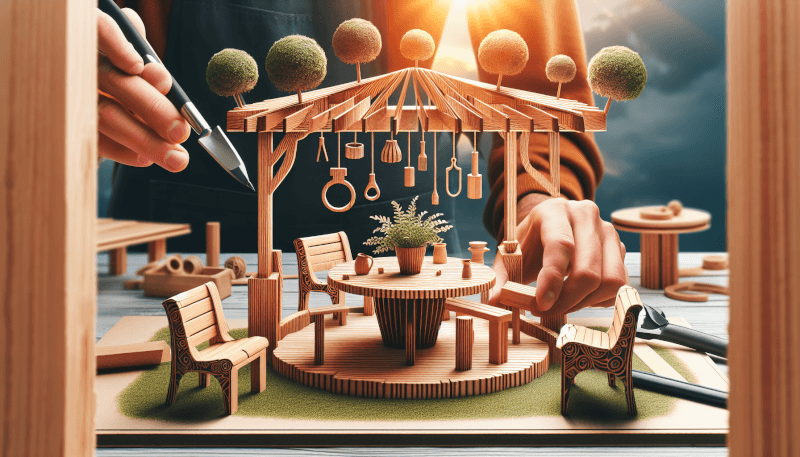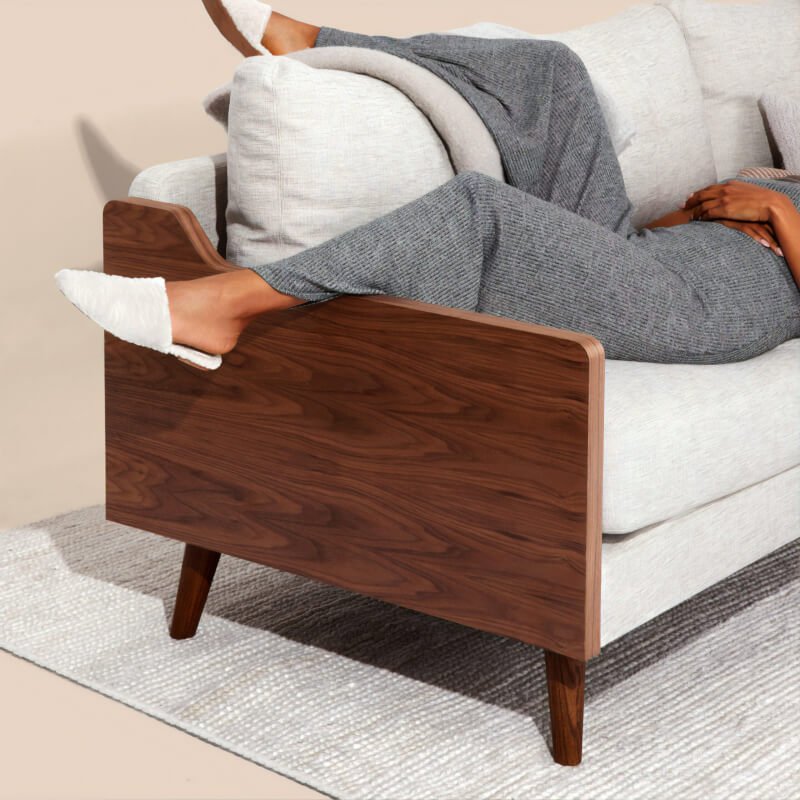If you’re looking to spruce up your outdoor space and add a personal touch, then DIY garden furniture projects are the perfect solution. From stylish wooden benches to rustic pallet loungers, there are endless possibilities to transform your garden into a cozy oasis. Not only will these projects save you money, but they also provide a sense of accomplishment and pride when you can relax and enjoy the fruits of your labor. So, grab your tools and get ready to embark on a creative journey that will enhance your outdoor living experience.
Choosing the Right Materials
When it comes to DIY garden furniture projects, one of the most important aspects is choosing the right materials. You want to make sure that the materials you use are durable, weather-resistant, and able to withstand the elements. Some popular options for outdoor furniture include cedar, teak, and pressure-treated wood. These materials are known for their durability and ability to resist rot and decay.
In addition to choosing the right type of wood, you’ll also want to consider the finish of your furniture. Applying a waterproof sealant to your finished furniture can help protect it from moisture and extend its lifespan. You can also choose to paint or stain your furniture to match your personal style and the look of your garden.

Tools and Equipment Needed
Before you start any DIY garden furniture project, it’s important to gather all the necessary tools and equipment. Here are some essential items you’ll need:
- Tape measure: This will help ensure accurate measurements while planning and building your furniture.
- Saw: A handsaw or power saw will be necessary for cutting the wood to size.
- Drill: You’ll need a drill to create holes for screws and other fasteners.
- Screwdriver: This is essential for tightening screws during construction.
- Sandpaper: To achieve a smooth finish on your furniture, sandpaper of various grits will be needed.
- Clamps: These will come in handy for holding pieces together while gluing or screwing them.
- Safety goggles and gloves: It’s important to protect your eyes and hands while working with tools.
With these basic tools, you’ll be well-prepared to take on any DIY garden furniture project.
Planning and Designing Your Furniture
Before you dive into the construction phase, it’s important to spend some time planning and designing your furniture. Consider the space available in your garden and think about how you want to use it. Do you need a dining table for outdoor meals? Or perhaps a relaxing bench for reading and enjoying nature?
Take accurate measurements of your space and sketch out your design ideas. Consider the overall style and aesthetic you want to achieve. This is also the time to decide on any additional features or accessories you want to incorporate, such as built-in storage or a pergola.
Basic Woodworking Techniques
Even if you’re new to woodworking, don’t worry! With a little practice and patience, you can easily learn some basic woodworking techniques to create beautiful DIY garden furniture. Here are a few techniques you’ll commonly use:
- Measuring and marking: Accurate measurements are crucial for a successful project. Use a tape measure and mark the wood with a pencil or marker before making any cuts.
- Cutting: Whether using a handsaw or a power saw, be sure to take your time and make precise cuts. Follow your marked lines and use a steady hand.
- Drilling: To create holes for screws and fasteners, use a drill with the appropriate size bit. Take care to align the holes correctly to ensure a secure connection.
- Sanding: Smooth out any rough edges or surfaces with sandpaper. Start with a rough grit and progressively work your way to a finer grit for a polished finish.
- Assembly: Follow your design plans and use clamps or other means to hold pieces together while attaching them. Take your time to ensure everything is aligned properly before tightening screws or applying glue.
Now that you have a good understanding of the basics, let’s dive into some specific DIY garden furniture projects you can tackle!
1. Building a Wooden Bench
A wooden bench is a classic addition to any garden and can provide a comfortable seating option for you and your guests. Start by cutting the pieces of wood according to your design, ensuring you have a seat, backrest, and legs. Sand all the pieces to create a smooth surface and assemble them using screws or wood glue. Finish off with a coat of sealant or paint to protect the wood from the elements.

2. Creating a Pallet Sofa
If you’re looking for a more relaxed seating option, a pallet sofa is a great choice. Start by gathering a few wooden pallets and sanding them down to remove any roughness. Arrange the pallets in a configuration that suits your space and secure them together using screws or brackets. Add comfortable cushions and pillows, and your cozy pallet sofa is ready to enjoy!
3. Constructing a Garden Dining Table
For outdoor meals and gatherings, a garden dining table is essential. Begin by cutting the tabletop and legs according to your desired dimensions. Create pockets or holes for the legs to insert into the tabletop, and secure them with screws or dowels. Sand the surface smooth and apply a waterproof sealant or paint to protect the table from moisture.

4. Designing a Vertical Herb Garden
Bring fresh herbs right to your fingertips with a vertical herb garden. Using reclaimed wood or cedar boards, construct a frame with multiple shelves. Attach the shelves at an angle so that the herbs receive proper sunlight. Add small pots or containers to the shelves and fill them with your favorite herbs. Hang the vertical herb garden on a wall or fence, and enjoy the convenience of fresh herbs for your culinary creations.
5. Building a Hammock Stand
A hammock is the perfect lounging spot for lazy summer days. To create a sturdy hammock stand, start by cutting two long pieces of wood for the base and two shorter pieces for the upright supports. Secure the pieces together using screws or brackets. Attach hooks or eye bolts to the upright supports to hang your hammock. Place it in a shady spot in your garden, and you’ll have a relaxing oasis in no time.

Creating Outdoor Storage Solutions
In addition to seating and dining options, it’s important to consider outdoor storage solutions for your garden. Here are a few projects you can tackle:
1. Making a Garden Shed
If you have ample space in your garden, a garden shed can provide valuable storage for your tools, equipment, and gardening supplies. Start by building a sturdy foundation using concrete or paving stones. Construct the walls, roof, and door using weather-resistant materials such as pressure-treated wood or vinyl siding. Add shelves, hooks, and other storage solutions inside to keep everything organized.

2. Building a Storage Bench
A storage bench is a versatile piece of furniture that serves both seating and storage purposes. Begin by constructing the bench frame using pressure-treated wood. Add a hinged lid or drawers to create storage compartments. Finish the bench with paint or stain and add cushions for comfort. Not only will it provide a seating area, but it will also keep your garden pillows, cushions, and other essentials neatly stored away.
3. Constructing a Tool Organizer
To keep your garden tools organized and easily accessible, consider building a tool organizer. Start by attaching a sheet of pegboard to a wooden frame. Add hooks, shelves, and holders to hold your various tools. Hang the organizer on a wall in your shed or on the side of your house for easy access. This simple project will help you keep your tools in order and save you time when you’re working in the garden.
Decorative Furniture Ideas for Your Garden
If you want to add a touch of style and charm to your garden, consider these decorative furniture ideas:
1. Designing a Tree Bench
A tree bench is a unique and eye-catching addition to any garden. Begin by measuring the circumference of the tree trunk and cutting the circular bench seat to fit around it. Create the backrest and legs according to your design and assemble everything using screws or dowels. Place the bench around the tree, and you’ll have a cozy spot to relax and enjoy the shade.
2. Creating a Pergola Swing
A pergola swing adds a touch of elegance to your garden while providing a comfortable seating option. Begin by constructing a pergola frame using pressure-treated wood beams. Attach chains or ropes to the frame and hang a swing seat from them. Finish the swing with decorative cushions and pillows, and you’ll have a stylish spot to swing and unwind in your garden.
3. Making a Fire Pit Seating Area
Create a cozy and inviting fire pit seating area in your garden for gatherings and relaxation. Begin by constructing a circular or rectangular seating area using pressure-treated wood. Add seating benches or chairs according to your design. Finish the wood with a protective sealant and arrange the seating around a fire pit in the center. Now you can enjoy the warmth and ambiance of a crackling fire in your own backyard.
4. Building a Flower Box Bench
Combine the beauty of flowers with a functional seating area by building a flower box bench. Start by constructing a sturdy bench frame using pressure-treated wood. Attach flower boxes on either side of the bench, and fill them with your favorite flowers or plants. Finish the bench with paint or stain and enjoy the colorful and fragrant addition to your garden.
Maintenance and Care Tips for DIY Garden Furniture
Once you’ve completed your DIY garden furniture projects, it’s important to take care of them to ensure their longevity and beauty. Here are some maintenance and care tips:
1. Protecting Furniture from Weather
To protect your furniture from the harsh outdoor elements, consider covering it with weatherproof covers when not in use. This will help prevent moisture damage and fading from the sun. If possible, bring your furniture indoors during extreme weather conditions, such as heavy rain or snow.
2. Cleaning and Staining Wood Furniture
Regular cleaning is essential to maintain the appearance of your wood furniture. Use a mild soap and water solution to gently clean the surface. Avoid harsh chemicals or abrasive cleaners that can damage the finish. Additionally, applying a fresh coat of stain or sealant every few years will help protect the wood and maintain its color.
3. Repairing and Restoring Furniture
Over time, your furniture may show signs of wear and tear. It’s important to address any repairs or damage as soon as possible to prevent further deterioration. Replace any loose screws or broken parts, and sand and refinish the wood if necessary. With a little maintenance and care, your DIY garden furniture will continue to bring joy and comfort to your outdoor space for years to come.
In conclusion, DIY garden furniture projects can be a fun and rewarding way to enhance your outdoor space. By choosing the right materials, gathering the necessary tools, planning your designs, and employing basic woodworking techniques, you can create beautiful and functional furniture for your garden. Whether it’s a wooden bench, pallet sofa, or storage shed, your DIY creations will add style and personality to your outdoor oasis. Remember to properly maintain and care for your furniture to ensure its longevity and continue enjoying the fruits of your labor.


